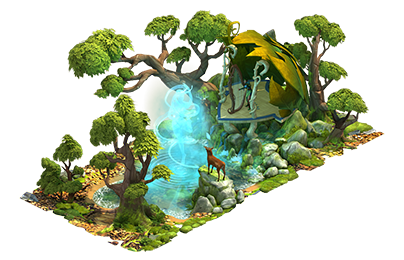@NormalMoon Apathy is a realistic response to the belief that "everybody dies." But "everybody dies" is not a universal belief and one can actually choose to think that, in some way or other, what he or she, or anybody does, matters. If you think about it, if I think the universe is all that exists (i.e. I'm a strict materialist) and I know from current cosmology that it will reach a state where the energy density is so low that nothing can occur -- i.e. everything is dead, then, "eternally speaking" nothing matters. Everything, including our own actions, dies. But if I believe that nothing matters then I must also admit that what I believe doesn't matter as well. If the "truth" is that nothing matters then it doesn't matter if I believe a lie. Which is an interesting position, don't you think?
In other words, I can choose to believe things matter. And if I think it will make my life happier, more fun, or whatever, then why not? Who cares what the "truth" is if the truth doesn't matter. Tolstoy, the author of "War and Peace" arrived at the age of fifty and fell into a deep depression. He contemplated the very question implied in your words. Since he was a materialist and atheist he found that, indeed, nothing he had done or ever would do, mattered. But then, in his depression, he asked himself how it was that those who did believe things mattered managed to avoid the conclusion that nothing mattered. He looked around and found that in fact, many people, some bright, some not, believed in something "beyond" the material world. He knew, or at least he thought he knew, that they were deluded. But they were also most happy and at least reasonably fulfilled so, he reasoned, if they believed the lie they at least got some short term fulfillment from it -- which he had not gotten from his own philosophy.
Pascal, the 17th century mathematician offered a suggestion that one could respond to the question of God's existence by asking what the results would be to believe or not. In other words, if one simply choose to believe or not, how would that play out in his or her life and, if it ended up existing, the "eternal?" It's interesting to consider that he, too, suggests people make a choice and believe because the logic of existence (here, in your case the belief that things matter) leads to a more satisfactory life (and, in Pascal's case afterlife). Of course Pascal is speaking of God, but the same logic applies to just believing things matter.
After this argument, which he, I believe, calls "The Wager" Pascal then responds to the question, "but what if I don't believe in God?" -- or in this case, "that there is meaning in life," -- with "act as if you do." It's ironic but, in fact, we do tend to come to believe that which we enact in our lives. Victor Frankl, the author of "Man's Search for Meaning" concludes that a person will endure any "how" if he has a reason"why." I would suggest therefore, based upon these three authors, one would do well to find a "why" even if one knows, or thinks they know, it to be a lie. What matters, in the end, is you. Your life, your perspective and understanding, your fulfillment. And you can choose to enact what you think matters even if you are apathetic about the entire, long term, prognosis.
This "short term and selfish" perspective (as it's been termed) is not, I think a bad thing. There is no logical reason for believing a truth that makes you miserable and unfulfilled if there exists a lie that does the opposite. If there is no eternal significance in what we do or say then let us turn to the immediate and live with whatever random belief we can. At least in that way we don't short-circuit ourselves and cause those who believe WE matter any needless grief.
Just some thoughts on the "matter that matters."
AJ

 Dear forum visitor,
It looks as though you have not registered for a forum account, or are not signed in. In order to participate in current discussions or create new threads, you will need to register for a forum account by clicking on the link below.
Dear forum visitor,
It looks as though you have not registered for a forum account, or are not signed in. In order to participate in current discussions or create new threads, you will need to register for a forum account by clicking on the link below.